For those who have ever set foot in Dalat, the land of flowers, during the winter, you will surely be captivated by the image of vibrant mimosa flowers with their gentle and enchanting fragrance.
1 What is the mimosa flower?
The mimosa flower, with the scientific name Acacia Podalyriaefolia (Cunn Mimosaceae), belongs to the Virginian family, commonly known as round-leaved acacia. This tree prefers a cool climate and is therefore abundantly planted in Dalat.
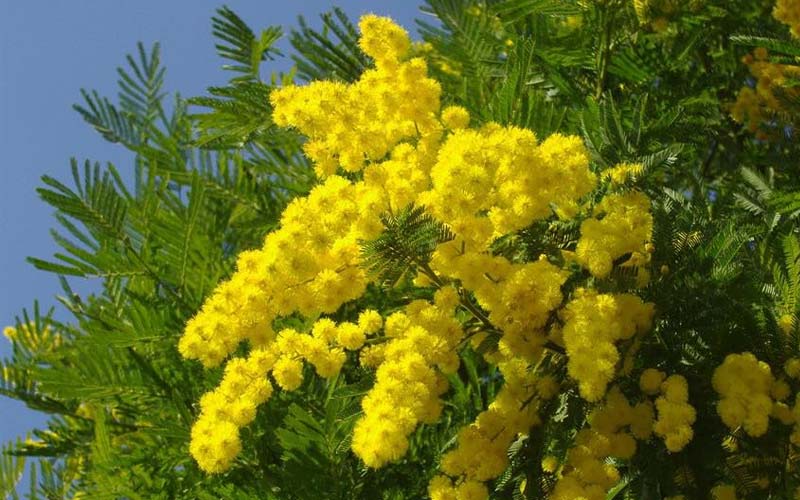 Acacia Podalyriaefolia, the scientific name for the mimosa flower
Acacia Podalyriaefolia, the scientific name for the mimosa flower
Legend has it that the mimosa originated in Australia, stemming from a tragic tale of a beautiful young girl who died alongside her lover as they could not be together in life. Their love and sacrifice gave birth to this flower, thus the name mimosa.
Mimosa is a woody tree with a lifespan of about 10 years, boasting green leaves and a wide canopy of around 10 meters. Each branch of the mimosa tree is filled with tiny branches, and its leaves are oval-shaped, approximately 2 cm long, with a silvery-white underside as if dusted with a layer of powder. The flowers typically bloom from late summer to the following spring, showcasing a vibrant yellow color and a subtle fragrance.
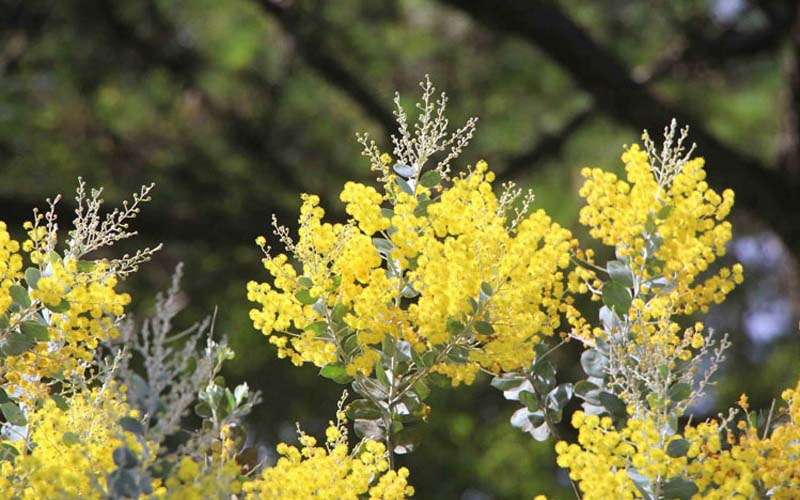 The vibrant beauty of mimosa flowers
The vibrant beauty of mimosa flowers
In Dalat, there is a pass named after the mimosa flower, and every year, during the blooming season, tourists flock to this place to admire the stunning display of flowers and capture memorable photographs.
2 The significance of the mimosa flower
The mimosa flower is beloved for its simple, rustic, and pristine appearance, as well as its bright and vibrant colors that rival those of any other flower.
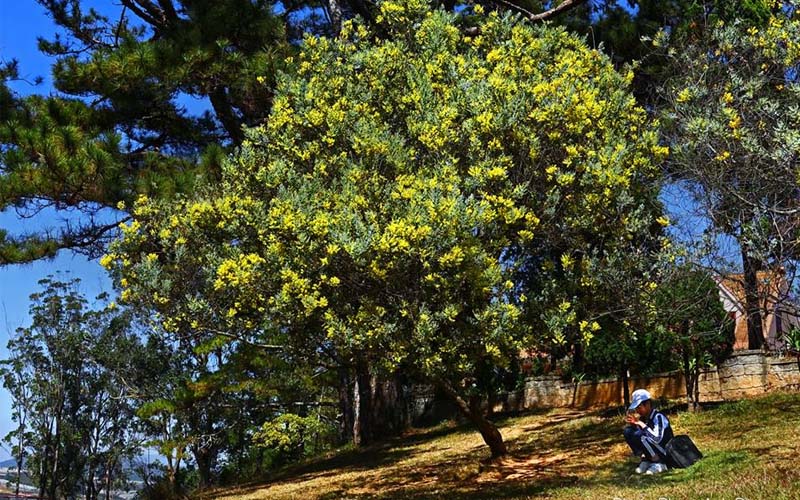 Mimosa flowers adorning the Dalat pass
Mimosa flowers adorning the Dalat pass
However, beneath its delicate and graceful exterior lies a heartbreaking love story that touches the hearts of many. Thus, the mimosa symbolizes a passionate, devoted, and profound love that is admired by all.
Additionally, this flower represents sincere emotions, deep understanding, and compassion, embodying the pristine beauty of a girl in her twenties, capturing the essence of youth.
It can be seen that despite its wild and vibrant beauty, the mimosa flower holds a wealth of profound meanings that only serve to increase our admiration for this captivating bloom.
3 How to cultivate mimosa flowers for a beautiful bloom
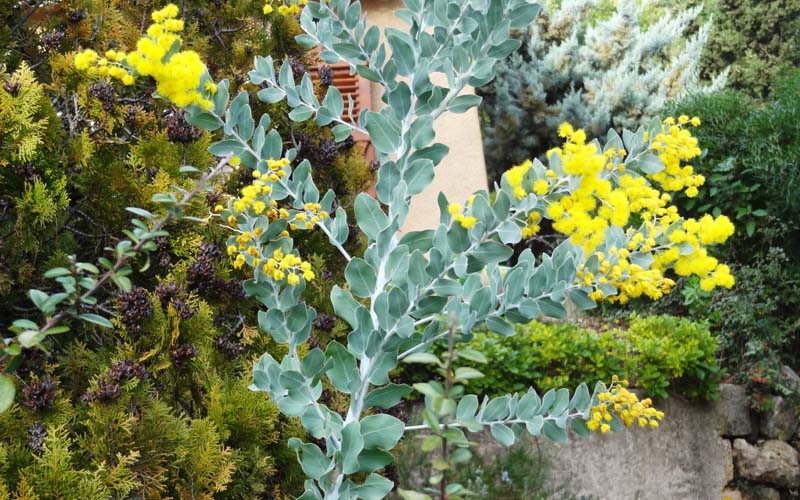 Growing mimosa flowers is relatively simple
Growing mimosa flowers is relatively simple
Mimosa trees are relatively easy to cultivate and adapt, making their planting and care process quite straightforward.
Methods: You can grow mimosa trees through seed germination or cuttings.
- For seed germination, soak the seeds for about 6 hours before planting them in the soil.
- For cuttings, select healthy branches from the mother plant, soak them in a rooting solution overnight, and then plant them in the soil.
Soil: Mimosa trees thrive in nutrient-rich, well-drained, and airy soil with a pH level between 5 and 6.
Water: As mimosa trees prefer a moist environment and cool temperatures, regular watering is essential, at least once or twice a day.
Pests and diseases: While mimosa trees rarely encounter complex pest and disease issues, it is important to monitor them regularly and take preventive measures to control leaf-eating insects.
Temperature and light: These trees flourish in temperatures ranging from 18 to 25 degrees Celsius, making them suitable for home gardens or balconies.
4 A collection of beautiful mimosa flower images
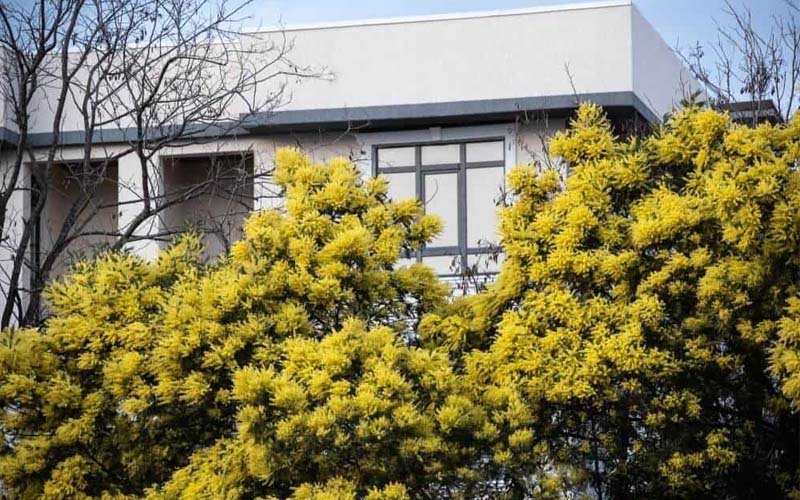 The dazzling display of mimosa flowers
The dazzling display of mimosa flowers
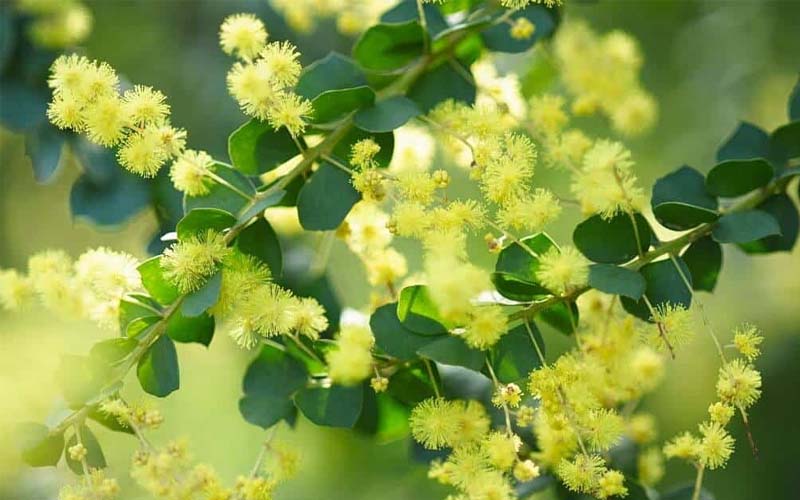 Mimosa, the flower of love
Mimosa, the flower of love
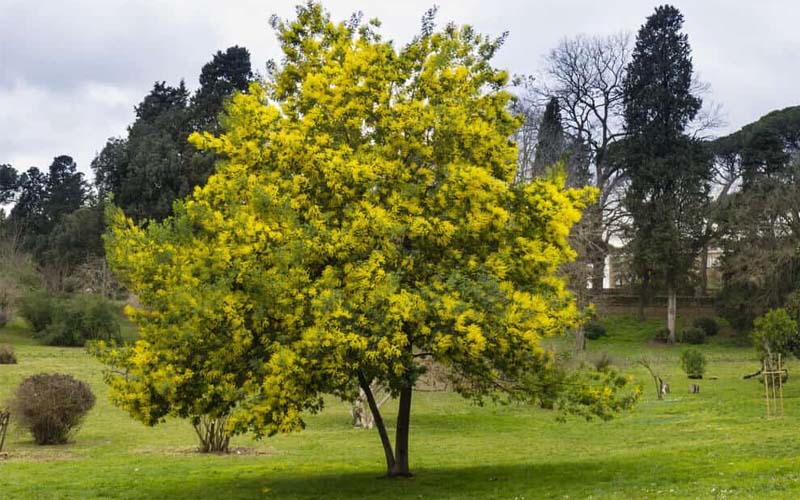 Mimosa symbolizes loyalty
Mimosa symbolizes loyalty
 Mimosa, the muse of spring
Mimosa, the muse of spring
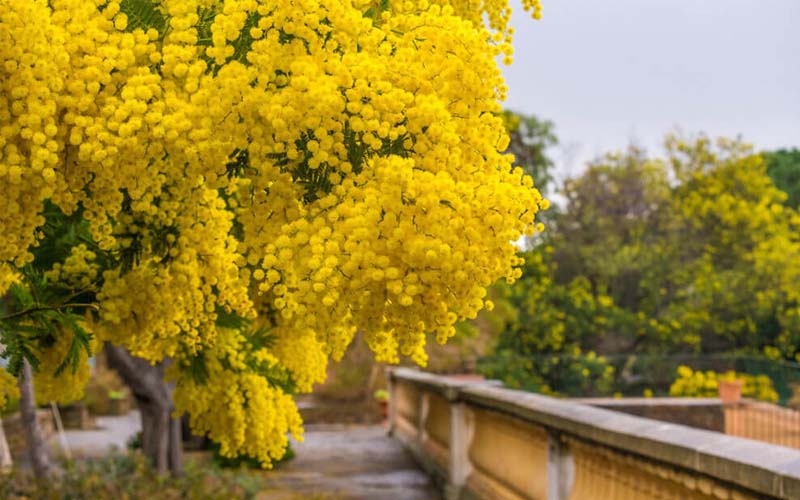 Mimosa’s radiant yellow hues
Mimosa’s radiant yellow hues
We hope that through this article, you have gained valuable insights into the mimosa flower and grown to love it even more. Don’t forget to visit Dalat to witness the breathtaking mimosa flower pass.
Sunflowers: Their Significance, Pictures, and a Guide to Growing and Caring for Them at Home
Daisy is a beloved flower that has captured the hearts of many. With its vibrant petals and sunny disposition, it’s no wonder that people are drawn to its beauty. But there’s more to this charming flower than meets the eye. Its history, symbolism, and diverse varieties offer a fascinating insight into the world of flora. Originating from a rich and diverse heritage, the daisy has a long and intriguing past that is intertwined with various cultures and traditions. Its name, derived from ‘day’s eye’, reflects the flower’s unique ability to open its petals with the morning sun and close them again at night. This characteristic has earned it a special place in folklore and mythology, often symbolizing purity, innocence, and new beginnings.


































